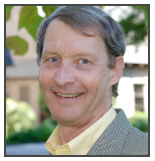Forge Leadership Podcast. Episode 3 : Bob Freeman

Robert E. Freeman
Assistant Professor of Global Leadership.
Fuller Seminary. Pasadena, California
What does it take to form a leader and what elements go into designing programmes that are transformational in the life of a leader? Simon Barrington, who studied under Bob Freeman at Fuller interviews him about what makes effective leadership development for in service leaders and how the process of formation happens.
Freeman explains that education that transforms comes not only from educational content but from life experience. If you can reflect on your experience then you can be part of a transformative educational experience with others in community..
The conviction is that the leader’s role is to enable other people to come alongside God’s mission. God is already at work in us, so it’s not only a matter of what He is doing in the world, but also what He is doing in the Leader.
Fuller have concluded that rich community and glboal diversity are essential to enabling a leader to engage in their own Spiritual formation. Rubbing shoulders with people from different backgrounds, different countries and different streams in cohorts is essential to the creation of a community of practise, and most of the mentoring that takes place is peer to peer mentoring which enables a diverse and rich learning community.
Discipleship is meant to end in a inner transformation of the leader so that they lead from out of who they are, not what they do. Being must always proceed doing. This is vitally important, because when leaders fail, it not only hurts the leader but critically also those that are following them and discipleship ends.
Freeman explains that as they gather leaders of experience, they find that they are often, hurt, lonely, confused by the changing role of leadership and of the Church and by changing culture. Therefore there is great need for inner transformation and the communities that are fostered on the programmes. These are safe spaces in which leaders can tell their stories and there is an exhale that takes place as leaders actually get excited about the fact that God has been at work in their lives already and has a plan for their future.
Freeman’s advice to young leaders is that there are six characteristics of those that finish well. All of these are focussed on “being” rather than “doing”. Mentoring, community, study of the formation process and creating a plan for character formation are absolutely critical, as is setting aside time for regular reflection.
Biography
Robert E. Freeman has spent his life developing leaders, or more accurately helping form the leaders God has chosen. He is associate dean for Fuller’s Master of Arts in Global Leadership and Doctor of Missiology programs, as well as assistant professor of global leadership in the School of Intercultural Studies.
Freeman teaches leadership development with a focus on adult education techniques and the use of information technologies. He oversees the seminary’s cutting-edge Master of Arts in Global Leadership, an accredited degree that can be earned almost entirely online. Freeman is keenly interested in developing technological and alternative modes of development for leaders who are already in ministry and thereby enabling them to better develop others.

